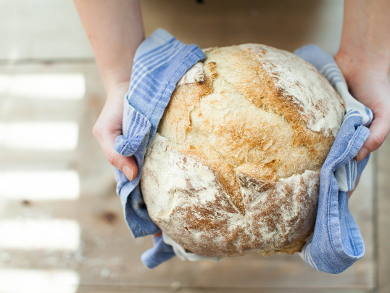The resistance of some proteins to gastrointestinal digestion may play a pivotal role in the development of food allergies. Therefore, many studies focus on the digestion process of purified proteins, but little is known about the impact of other food components and of food processing.
Frances Smith, University of Manchester, UK, and colleagues investigated the protein digestibility of a purified protein fraction of wheat, of flour, and of bread in simulated oral, gastric, and duodenal phases. They find that the digestion strongly depends on the processing state of the sample: whereas the pure protein is rapidly digested during the gastric phase, proteins in bread are virtually undigested at this stage.
This shows that the baking process reduces the digestibility of gluten. The team hypothesizes that gluten forms a stable complex with starch during the baking process and indeed, the addition of amylase, an enzyme that specifically cleaves starch, leads to an improved digestion of the protein fraction. Therefore, digestion studies should always consider the processing state of the food, as studies on protein fractions alone are not predictive for complex food matrices.
- Digestibility of gluten proteins is reduced by baking and enhanced by starch digestion,
Frances Smith, Xiaoyan Pan, Vincent Bellido, Geraldine A. Toole, Fred K. Gates, Martin S. J. Wickham, Peter R. Shewry, Serafim Bakalis, Philip Padfield, E. N. Clare Mills,
Mol. Nutr. Food Res. 2015.
DOI: 10.1002/mnfr.201500262



